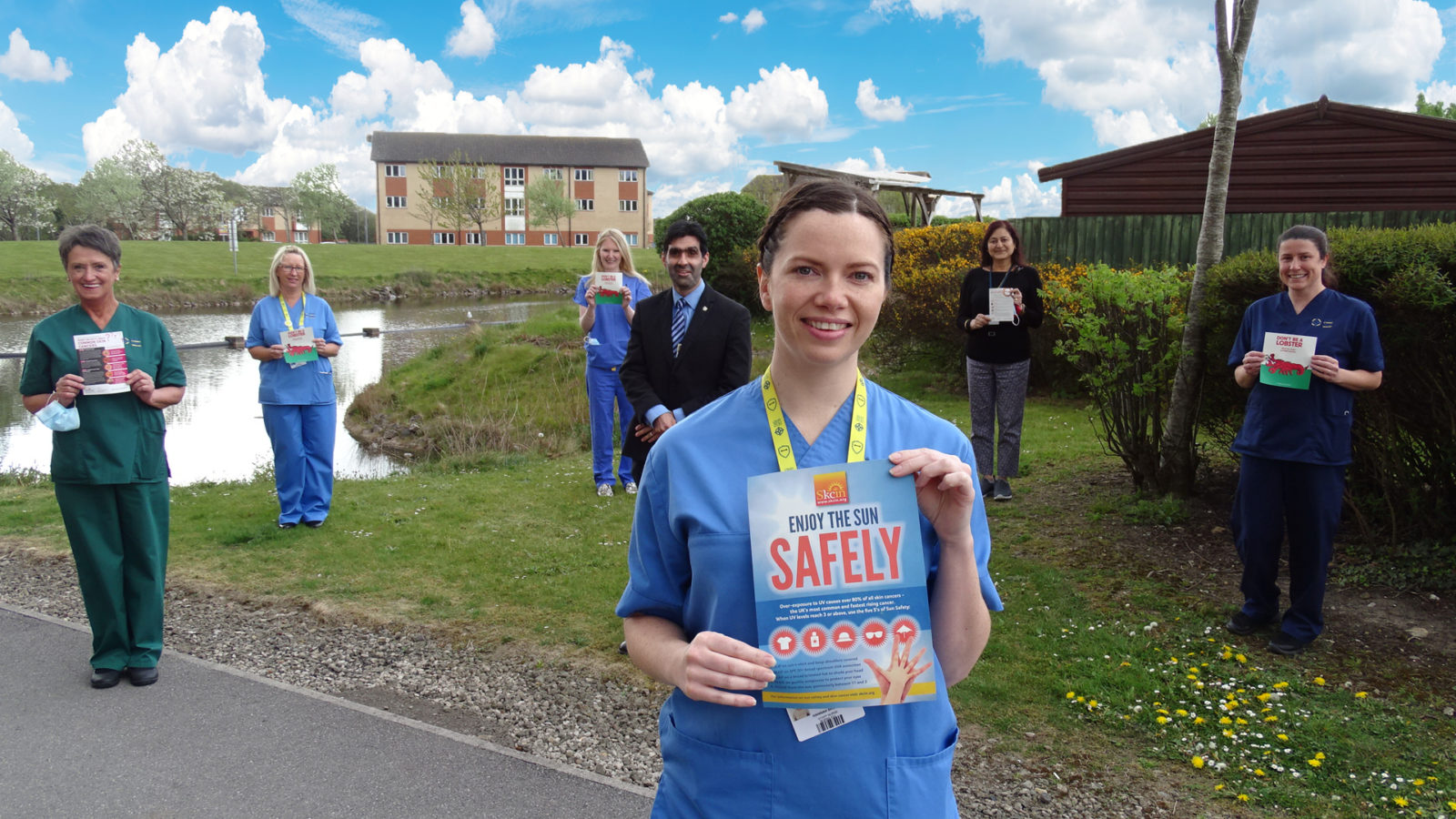Skin care experts in Swansea Bay are urging people to keep safe whilst enjoying the sun to help ward off cancer.
They are supporting the annual Sun Awareness Week, which started on Monday 3rd May and run by the British Association of Dermatologists.
The association has issued advice on what we can do to protect ourselves and highlight the risks involved with too much exposure to the sun’s rays and ultraviolet light.
The campaign aims to let the public know about the dangers of burning, sun bed use and excessive tanning to try to prevent skin cancers from developing.
It also encourages self-examinations to detect changes to your skin early on and where to get more information.
Nurse Hannah Brew of Swansea Bay UHB’s Dermatology Department said: “Most of us do enjoy getting out in the sun, when we get chance and a break from the rain, and sunshine isn’t always bad.
“It helps with the production of vitamin D as well as preventing osteoporosis in later life. However, unsafe sun exposure can lead to skin cancer which is the most common cancer in the UK with rates consistently climbing since the 1960s.
“More than 80 per cent of all skin cancers are caused by over-exposure to the sun and/or sun beds.”
The department has issued some important tips to help protect ourselves whilst out in the sun:
- Spend time in the shade during the sunniest part of the day when the sun is at its strongest, which is usually between 11am and 3pm in the summer months.
- Avoid direct sun exposure for babies and very young children.
- When it is not possible to stay out of the sun, keeping yourself well covered, with a hat, T-shirt, and sunglasses can give you additional protection. You can buy specialist children’s sun protection clothing as well.
- Apply sunscreen liberally to exposed areas of skin. Re-apply every two hours and straight after swimming or towelling to maintain protection.
Hannah added: “We must be careful because solar ultraviolet radiation is known to be carcinogenic to humans and can pass through clouds, glass, and clothing.
“There are three main types of skin cancer: basal cell carcinoma, squamous cell carcinoma and malignant melanoma. Major factors in the formation of these cancers is sun exposure and the use of sun lamps.
“Melanoma is the deadliest skin cancer and is now one of the most common cancers in young adults aged 15-34 in the UK. One blistering sunburn in childhood or adolescence more than doubles a person’s chances of developing melanoma later in life.
“More than 80 per cent of all skin cancers are caused by over-exposure to the sun and/or sun beds. If you are in any doubt whether you may have skin cancer, then check it out with your GP.”








Leave a Reply
View Comments